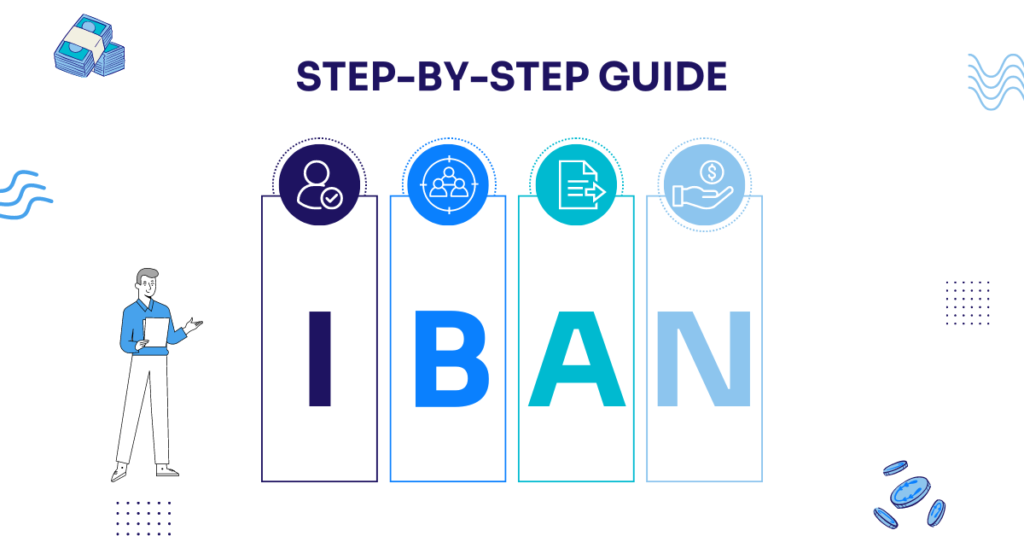Strategies for Crypto Fraud Detection
In an era where traditional banking systems are rapidly evolving due to the integration of blockchain technology and cryptocurrencies, executives in high-risk sectors face a unique set of challenges. These challenges extend beyond technology to include regulatory compliance, operational management, and strategic development. A critical aspect of this complex landscape is the development and implementation of robust, efficient, and forward-looking crypto fraud prevention systems, especially tailored for crypto merchant services.
Recent high-profile cryptocurrency cases, such as those involving FTX and Binance, starkly highlight the importance of advanced crypto fraud techniques in detection and prevention. These incidents have raised serious questions about the robustness of existing security measures and regulatory compliance in the crypto industry. They also underline the vulnerabilities inherent in the rapidly evolving digital asset space. As the market matures, the lessons drawn from these cryptocurrency fraud cases serve as a crucial reminder of the need for continuous innovation and vigilance in blockchain fraud detection methodologies. For businesses, particularly those in high-risk crypto transactions, enhancing fraud detection systems is not just a matter of compliance but a strategic necessity to safeguard operations and maintain trust in this dynamic environment.
The integration of cryptocurrencies into mainstream business operations brings remarkable opportunities alongside significant risks. The decentralized nature of these digital assets, while offering benefits like enhanced transaction speed and reduced processing costs, also exposes businesses to new forms of financial fraud in cryptocurrencies. This is particularly true for industries already deemed high-risk due to their transaction nature or regulatory environments.
This guide delves into the intricacies of state-of-the-art crypto fraud detection technology, serving as an invaluable resource for businesses seeking to bolster their defenses against the ever-evolving landscape of digital financial crime. It addresses not only the technical aspects of fraud detection but also provides insights into strategic planning and adherence to crypto regulatory compliance. Ensuring that companies are well-prepared to tackle the challenges and harness the opportunities presented by the integration of cryptocurrencies into their financial operations is essential in this rapidly changing sector.
The Business Impact of Irreversible Transactions
For businesses in high-risk industries—whether it’s online gambling, pharmaceuticals, or digital assets—the irreversible nature of cryptocurrency transactions can be both a blessing and a curse. On the one hand, the absence of a middleman facilitates faster and potentially cheaper transactions. On the other hand, it also eliminates the safety net of transaction reversals. This duality makes it imperative for executive leadership to invest in advanced fraud detection measures.
A single fraudulent transaction can trigger a chain reaction of adverse events, from substantial financial losses to regulatory scrutiny and reputational damage. Therefore, proactively mitigating these risks isn’t just a technical requirement, but a strategic imperative.
Regulatory Compliance: More than a Checkbox
Compliance with Anti-Money Laundering (AML) and Know Your Customer (KYC) regulations is a critical concern for companies venturing into the crypto space, particularly those dealing with large payments from foreign customers. These regulations aim to prevent illicit activities like money laundering and require businesses to gather sufficient information about their customers.
Companies must be vigilant about their international dealings, ensuring they’re not inadvertently enabling money laundering through complex supply chains involving foreign vendors or suppliers. Rigorous adherence to regulations like the EU’s Fifth Anti-Money Laundering Directive (5AMLD) not only mitigates risks but also serves to enhance your operation’s credibility and trustworthiness. Compliance with the Office of Foreign Assets Control (OFAC) is also non-negotiable.
Businesses must either independently verify or rely on a trusted third party to confirm the sourcing of any crypto they accept or disburse. Special attention should be paid to any crypto addresses that are sanctioned or restricted. Given these complexities, it’s vital for companies to be proactive in understanding and fulfilling their regulatory obligations to navigate the crypto landscape safely and responsibly.
Types of Fraudulent Activities and Their Implications
Navigating the world of cryptocurrencies carries an inherent set of risks for companies. For top-tier executives in high-risk sectors, understanding the landscape of crypto fraud isn’t just beneficial—it’s essential. A single fraudulent event can lead to serious financial loss, tarnish your brand, and even draw regulatory penalties.
In this section, we dissect the key types of crypto fraud you need to be aware of, offering you a clear roadmap for risk mitigation and informed decision-making:
Double Spending
In the context of cryptocurrencies double spending refers to the scenario where a single digital token is spent more than once. This can happen due to the digital nature of the tokens, where duplication is theoretically possible, unlike physical currency. In a double-spending attack, the perpetrator essentially manages to use the same digital currency for multiple transactions, undermining the trust and integrity of the cryptocurrency system.
Implications: The impact of double spending is particularly severe in high-risk sectors with large transaction volumes and values. It can lead to financial losses for businesses accepting cryptocurrency and erode trust in digital transactions, thereby damaging the reputation of the company and possibly affecting the market stability of the cryptocurrency involved.
Identity Theft & Unauthorised Access
This type of fraud involves the unauthorized acquisition and use of an individual’s personal data, typically for financial gain. In the context of crypto transactions, this could mean accessing and using someone’s digital wallet or trading accounts without their consent.
Implications: For businesses, the consequences of identity theft and unauthorized access can be dire, including substantial financial losses and regulatory consequences. In high-risk industries, where scrutiny is intense, even a single instance can lead to a loss of customer trust and potential legal ramifications.
Phishing Attacks and Social Engineering
Phishing and social engineering involve tricking individuals into revealing confidential information or performing certain actions. In the crypto world, this might involve deceiving individuals into transferring cryptocurrency to a fraudulent address or divulging wallet keys.
Implications: These types of attacks can lead not only to immediate financial losses but also to broader security breaches within a company. High-level executives are often targets, and successful attacks can compromise the integrity of entire operations, leading to both reputational damage and potential legal issues.
Market Manipulation Schemes
In the cryptocurrency market, manipulation schemes like “pump and dump” involve artificially inflating the price of a cryptocurrency before selling it off at the inflated price. This is often achieved through misleading or false information.
Implications: Such schemes can distort asset valuations, impacting everything from company solvency to investor confidence. For businesses, being caught up in such schemes, whether knowingly or unknowingly, can lead to significant financial losses and regulatory scrutiny.
Sophisticated Fraud Detection Mechanisms
In an age where malicious actors are growing increasingly sophisticated, merely having baseline security measures is akin to leaving your car unlocked in a high-crime area—it’s an open invitation for trouble. For executives in high-risk sectors, the task of implementing fraud detection mechanisms goes beyond basic compliance or standard risk management protocols. It is a question of strategic foresight, leveraging state-of-the-art technologies and methodologies to stay one step ahead of those who would exploit the vulnerabilities in the system.
The following fraud detection mechanisms blend innovation and robust security protocols to provide a multifaceted approach, aimed at offering a near-impregnable line of defence against various types of fraudulent activities.
AI-Powered Risk Modelling
Artificial Inteligence algorithms can analyse high volumes of transactions in real-time. By feeding historical data and various risk parameters, the model can predict the probability of fraudulent transactions with astonishing accuracy.
Multi-Signature Protocols
For corporate settings, introducing multi-signature wallets involving different members of the executive team can significantly decrease the chances of unauthorised transactions.
Time-Locked Smart Contracts
These can be particularly useful in high-risk transactions where significant funds are being transferred. Time-locked contracts allow for a more thorough review, providing a window to halt the transaction if red flags are identified.
Behavioural Analytics and Biometrics
Beyond traditional transaction monitoring, behavioural analytics look at the patterns of the user initiating the transaction, while biometric verification adds an extra layer of security.
Comprehensive KYC/AML Policies
In high-risk sectors, robust KYC and AML policies are non-negotiable. These checks are your first line of defence against malicious actors aiming to exploit your operations for financial gain.
Future-Proofing Your Fraud Detection Strategies
The ever-changing landscape of cryptocurrencies and constant advancements in fraud techniques demand that you not just react to the current state of affairs but anticipate future challenges and pre-emptively strategize for them.
Here are actionable steps to ensure your fraud detection capabilities remain at the forefront of technology and effectiveness:
Invest in R&D and Skill Development
Allocating budget and resources for Research & Development enables your team to explore next-generation anti-fraud technologies. Concurrently, upskilling your workforce in blockchain analytics and cybersecurity can yield long-term dividends.
Partner with Industry Experts
Collaborate with fintech companies, cybersecurity firms, and even academic researchers. These partnerships can provide early access to innovative fraud detection technologies and methodologies.
Implement Blockchain Forensic Tools
These specialised tools can trace, monitor, and analyse blockchain transactions. By doing so, you can identify unusual patterns or red flags that traditional monitoring tools might miss.
Adopt Quantum-Resistant Cryptographic Algorithms
Quantum computing poses a significant future risk to existing cryptographic methods. Investing in quantum-resistant algorithms now can prevent a potential catastrophe later.
Regular Audits and Third-Party Assessments
Periodic audits can provide a ‘health check’ for your current systems, while third-party assessments can offer an unbiased view of your operation’s vulnerability to fraud.
Keep an Eye on Regulatory Changes
Staying updated on emerging regulations can not only keep you compliant but may also offer insights into forthcoming risks and challenges, allowing you to adapt your fraud prevention strategies accordingly.
Run Regular Simulation Exercises
Stress-test your fraud detection mechanisms under simulated attack scenarios. The insights gained can be invaluable in identifying weaknesses and planning remedial action.
Implement an Adaptive Learning System
Utilise machine learning algorithms that adapt to new types of fraudulent activities. Such systems learn from each transaction, continually updating their risk assessment protocols to identify new fraud vectors.
By integrating these actionable steps into your long-term strategy, you don’t just secure your operation against existing fraud threats but also build a robust and scalable security infrastructure capable of evolving with the industry’s complexities and challenges.
Unlocking Crypto Success
In high-risk sectors, advanced fraud detection for crypto merchant services isn’t just a technical add-on, but a strategic must-have. The irreversible nature of cryptocurrency transactions amplifies the risks, making state-of-the-art fraud prevention vital for both financial and reputational health.
Employing a holistic approach that blends advanced technology, expert human oversight, and rigorous regulatory compliance is not optional—it’s essential for robust risk mitigation and the safeguarding of both financial assets and reputational capital. But even for well-staffed organizations, the complexities of this dynamic landscape often demand specialised expertise and forward-looking strategies.
Partnering with a third-party crypto payment provider can simplify your entry into the crypto ecosystem, especially for high-risk industries that may find it challenging to navigate this space independently. However, selecting the right provider should be a meticulous process that involves a thorough review of various operational and compliance aspects.
This is where Capitalixe can make a significant difference. With a focus on connecting businesses in high-risk industries with leading financial institutions and global payment services, we provide you access to an exclusive network of regulated, reliable partners tailored for the crypto space. We simplify complexity, letting you focus on growing your business confidently and securely.
Reach out to our team of experts for a complimentary consultation to learn more!










